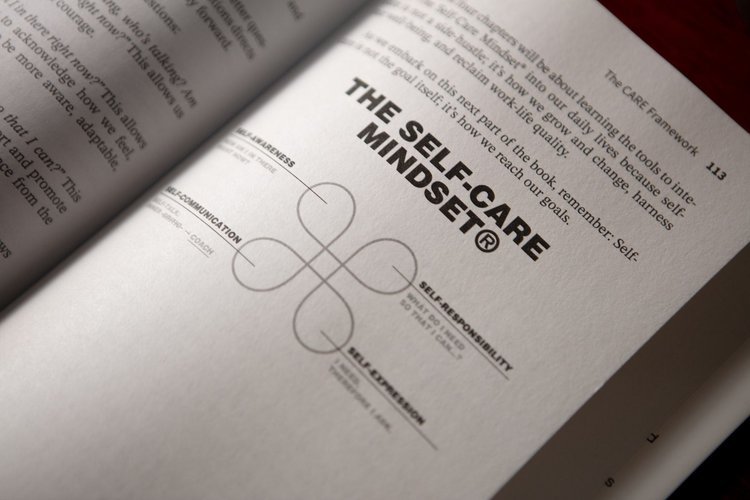SELF-CARE IS A SKILL
If self-care is a skill...
How would you change your relationship with self-care? How would you think of it as a strategy for success in 2023? Would you give yourself more grace as you learn? More space as you implement? More excitement as self-care starts working better for you?
If you've followed my work for a while, you know that I view self-care as a mindset, which is the focus of my new book, The Self-Care Mindset. If you've already read the book, you know I treat self-care as the foundation for how we meet adversity, navigate challenges, grow, and harness the future as we continue to enter into it, day after day.
We humans like predictability.
We like routine.
We fall into patterns of reaction and response.
Some are behaviors we don’t feel we have much control over because they “happen” when we are under pressure. Some we have cultivated over time as part of how others around us live their lives, and we fit into it. We call them habits, however very few of our habits are made based on decisions that have nothing to do with the people in our lives, home and work, because everything is a relationship. Everything we experience is an interaction with others and our environment.
Change your mind
When I work with people and teams to create change, everybody initially blames their habits as the reason they can’t achieve their goals without burning out. But it’s actually the way we think about self-care that keeps us stuck.
That’s why I advocate the switch in focus from habits to mindset. Ask yourself, if self-care is how we think, which affects how we engage with ourselves and others, and then how we make choices, decisions and act, how would your relationship with self-care change? Would you see it as a skill?
Let’s take a deeper look into the skills of The Self-Care Mindset® as we move through this year together and learn how to use them in everyday situations. You can apply the tools you learn in the book in any situation because self-care is not what we do at home after work to recover. It’s not the bubble bath or the me-time after dinner. Self-care is not time out, it’s how we spend our time better, and it’s a mindset we have with us all the time.
Most people are still influenced by society’s reflection of self-care, that it‘s about self. But it’s a lot more about how we CARE; communication, awareness, responsibility, and expression.
Communication is a major part of self-care. The inner dialog directs how you listen, what you listen to and what occupies your attention. It's where self-care starts. It's how we learn the importance of training our minds to be curious, courageous, constructive, creative, and compassionate. You might think of it as how your mind works or not, and you can argue that’s true because the mind works on stuff all the time, even without you noticing. Wouldn't it be great to use your mind with more intention and mindfulness? So that your thoughts inspire you to solve problems instead of making you worried and anxious about what’s not working?
This is not about positive thinking. It’s about understanding what happens when you are under stress. Hormones, like cortisol, take over, and you become hyper-focused, trapped in the survival mode mindset. When cortisol has hijacked your mind, you do what you’ve always done, you fall into the habits that you always have because you are running on automatic, reacting to the people and events around you, only to realize afterward that you had all the intention of doing things differently.
That’s why we need to learn to pause more.
It allows us to become more intentional and reclaim agency over how we respond to the adversity we face and the challenges we have to navigate and instead choose to think, engage, and act with more CARE. That’s Power-Pausing in action. It’s not about taking more breaks; it’s about pausing more, that small moment in time where you can make a change.
PAUSE ON THIS
Take a moment to see the connection between your habits and others.
Who influenced you (who had or has a similar habit),
Who are you adjusting to time-wise (when you do something) and action-wise (what you do).
Now take a look at your mindset and zoom back through time to see who influences your thinking.
How are you bringing that mindset with you now into your day and what about it works, and what about it doesn’t?


